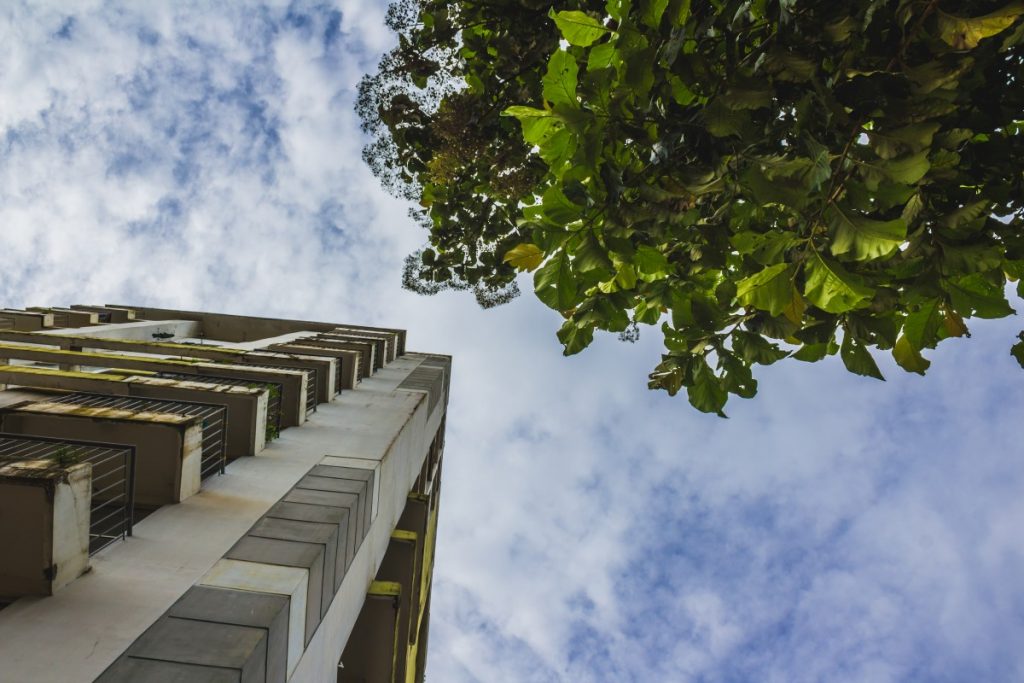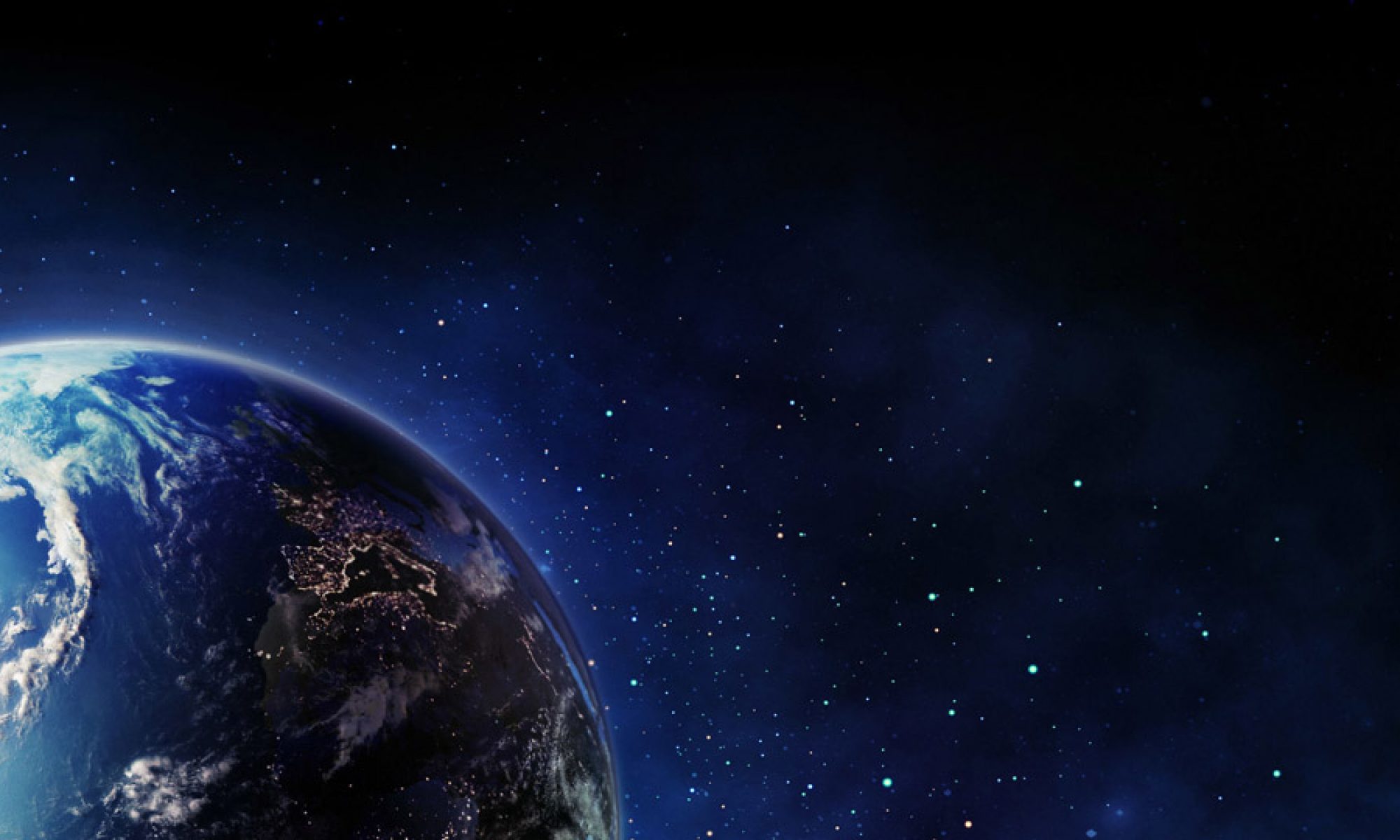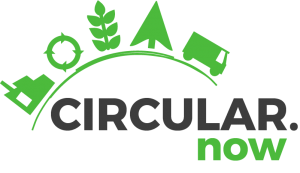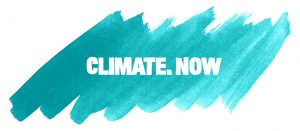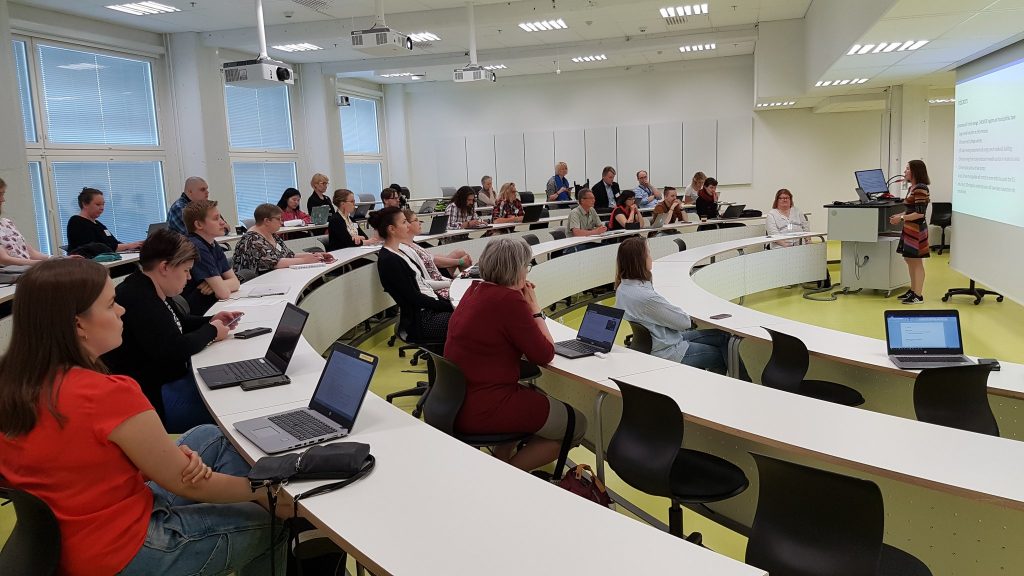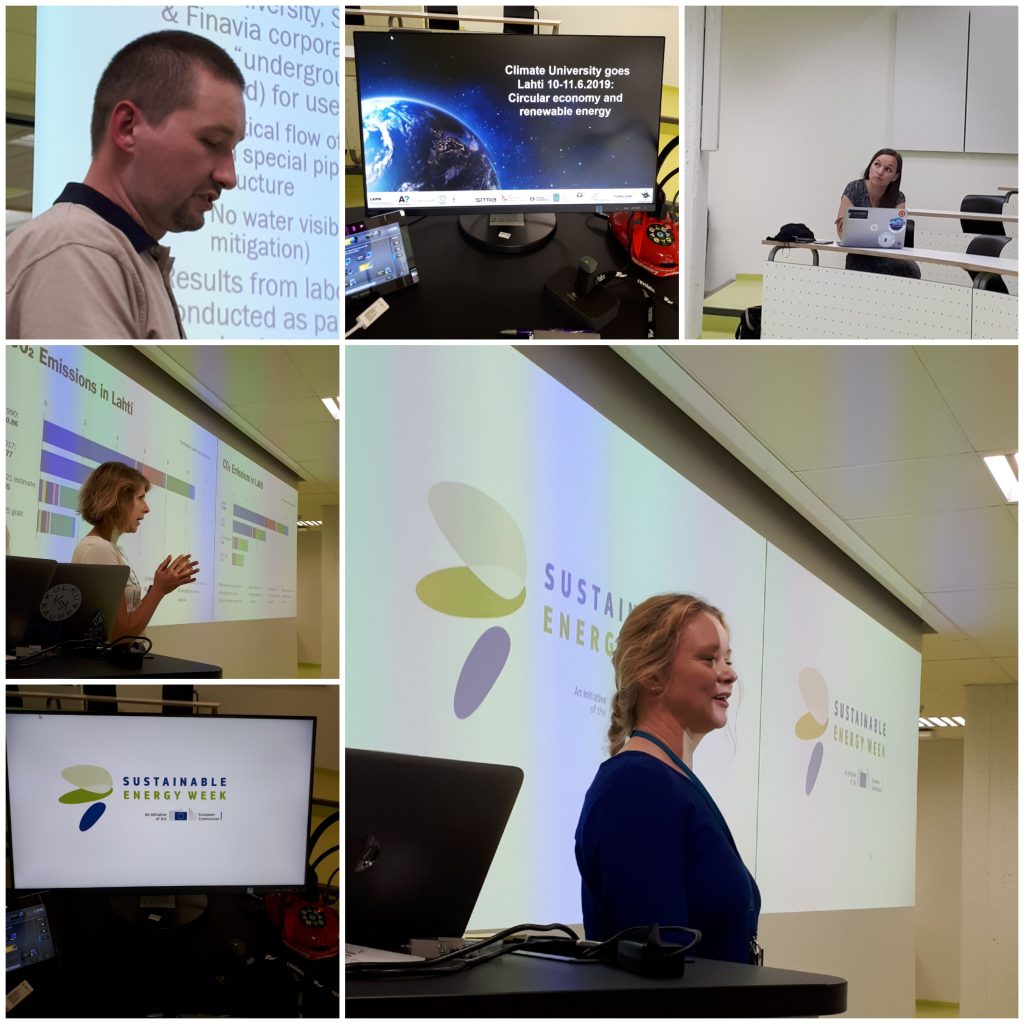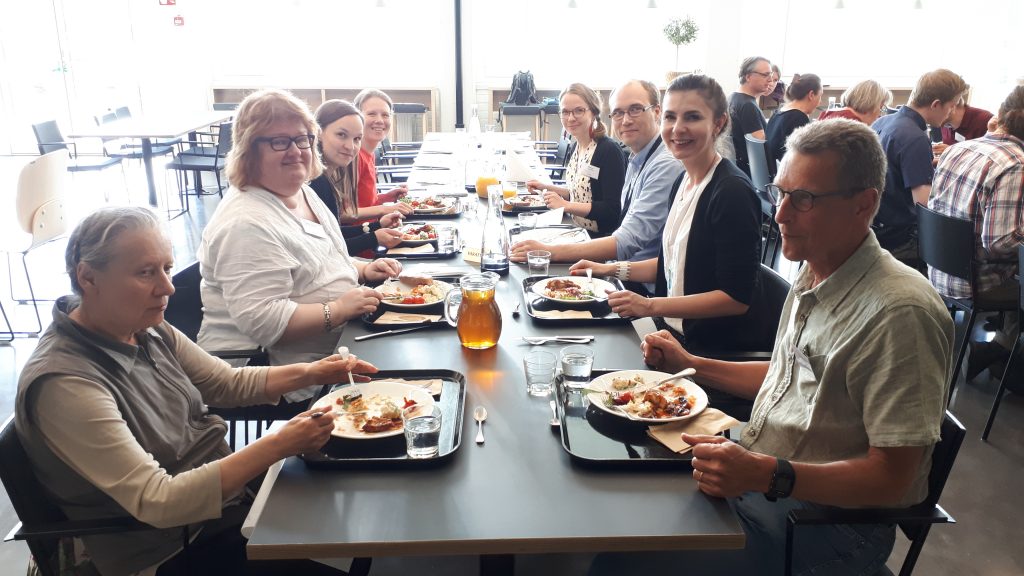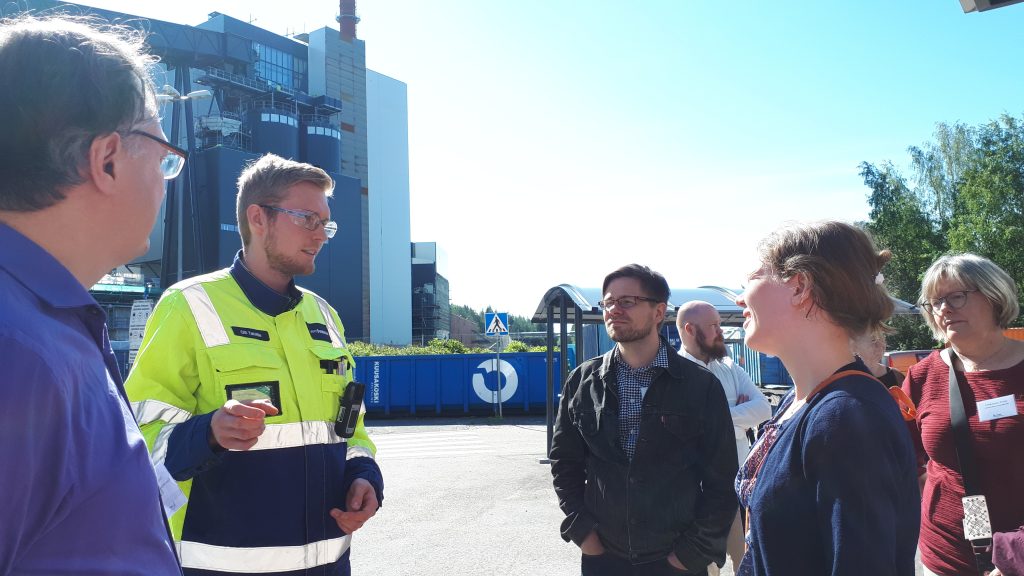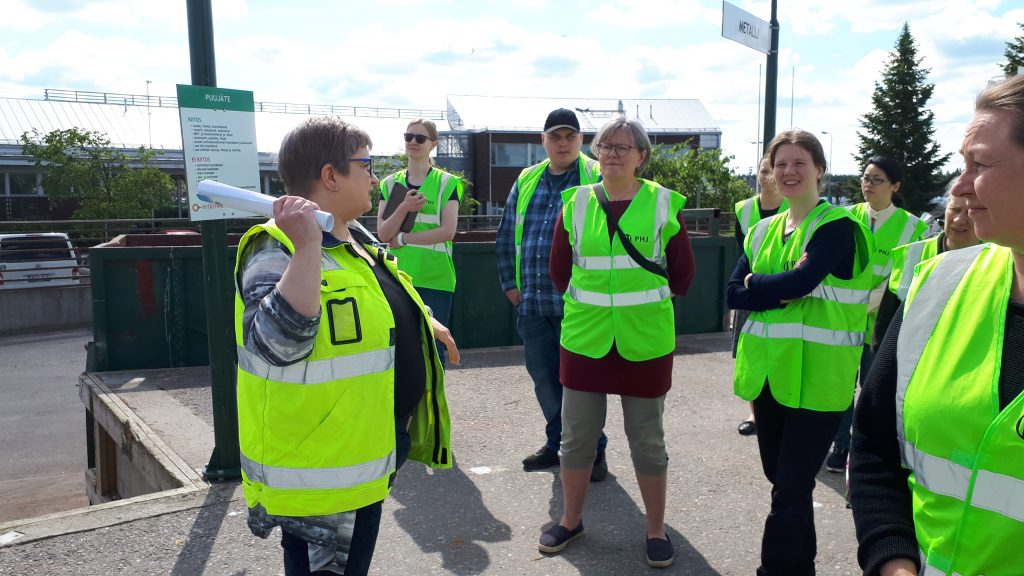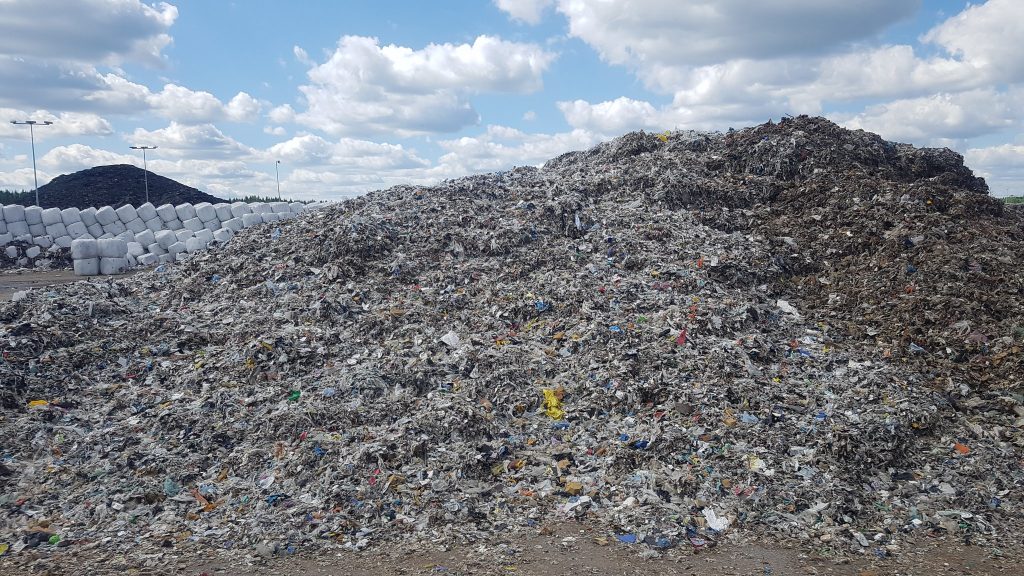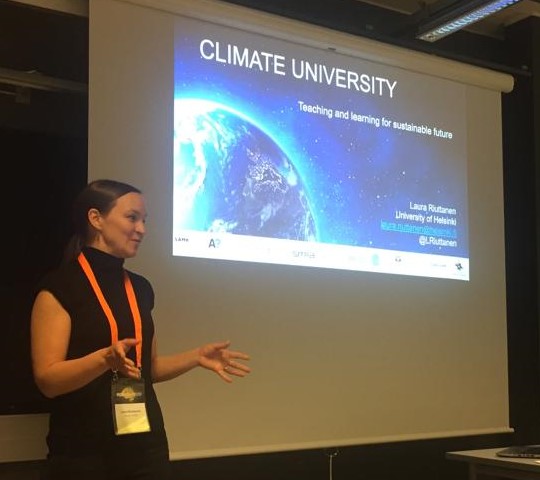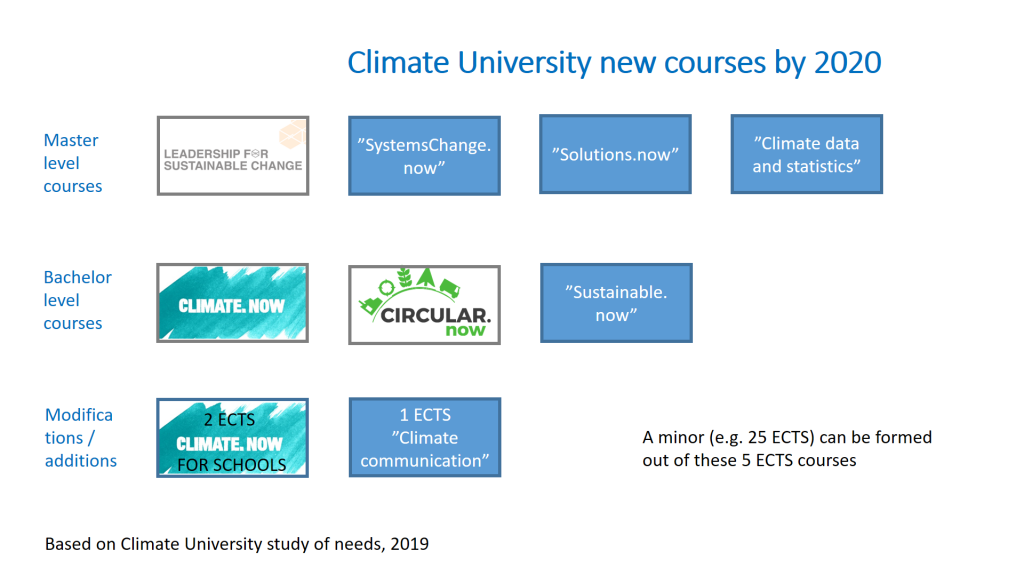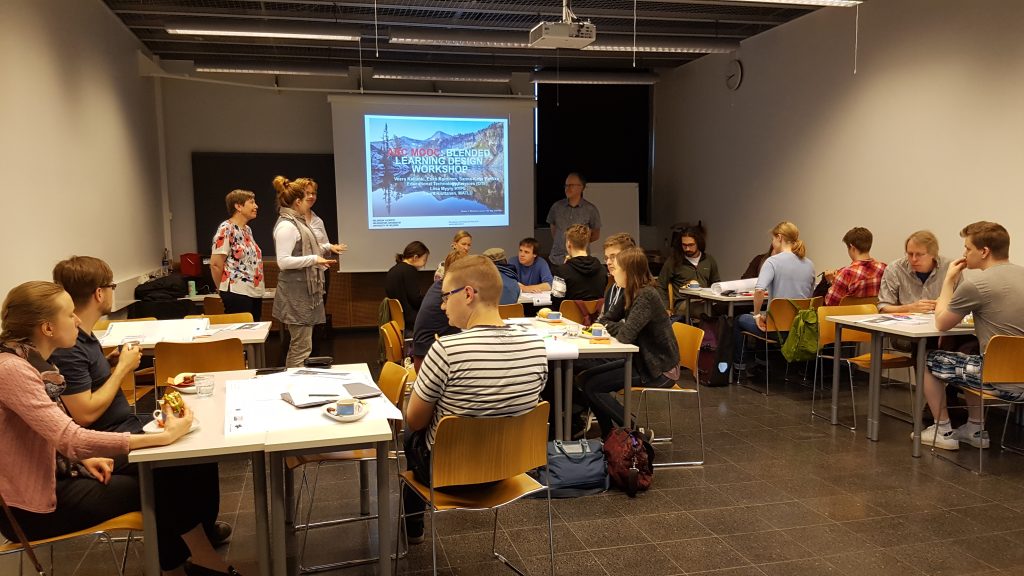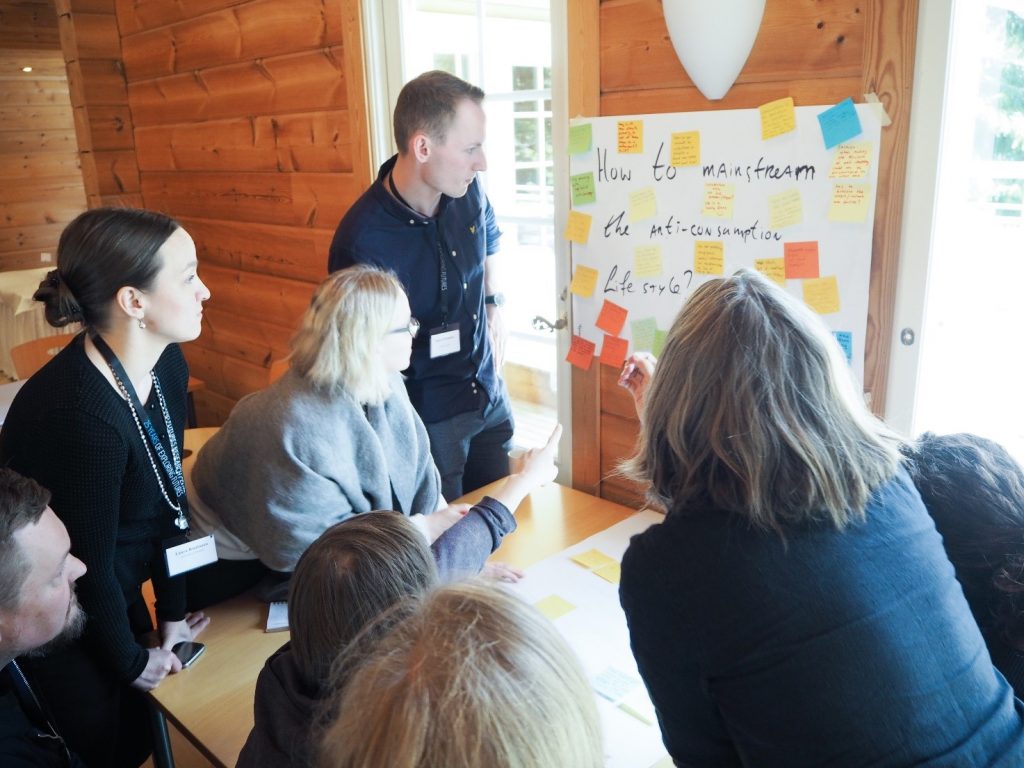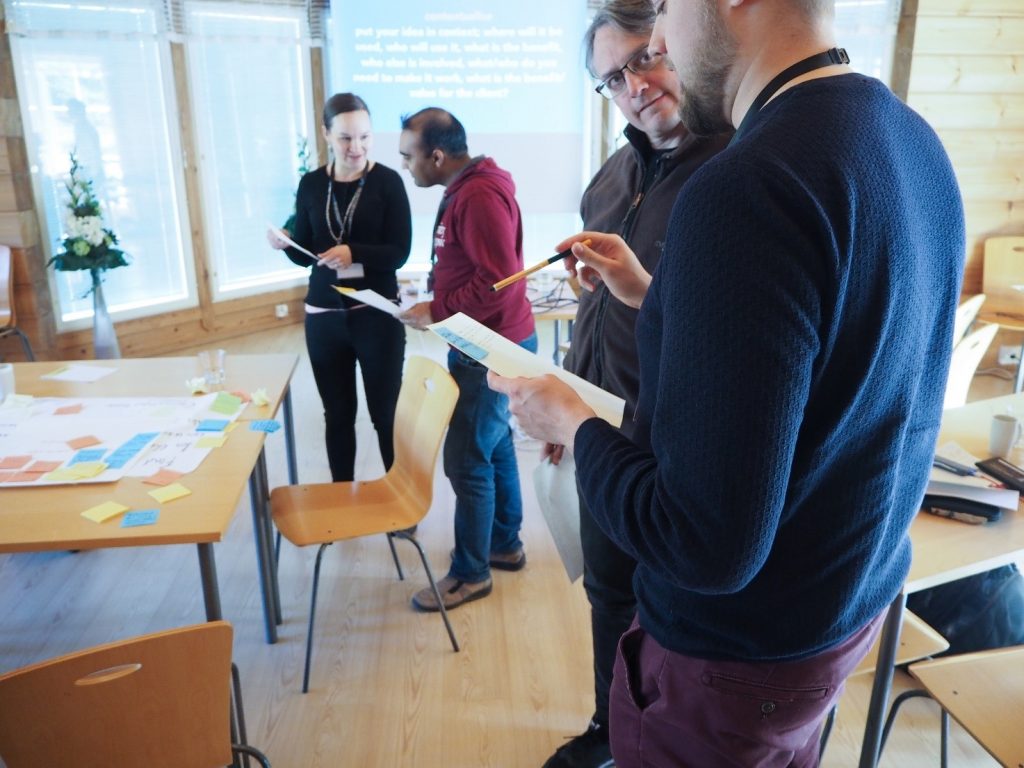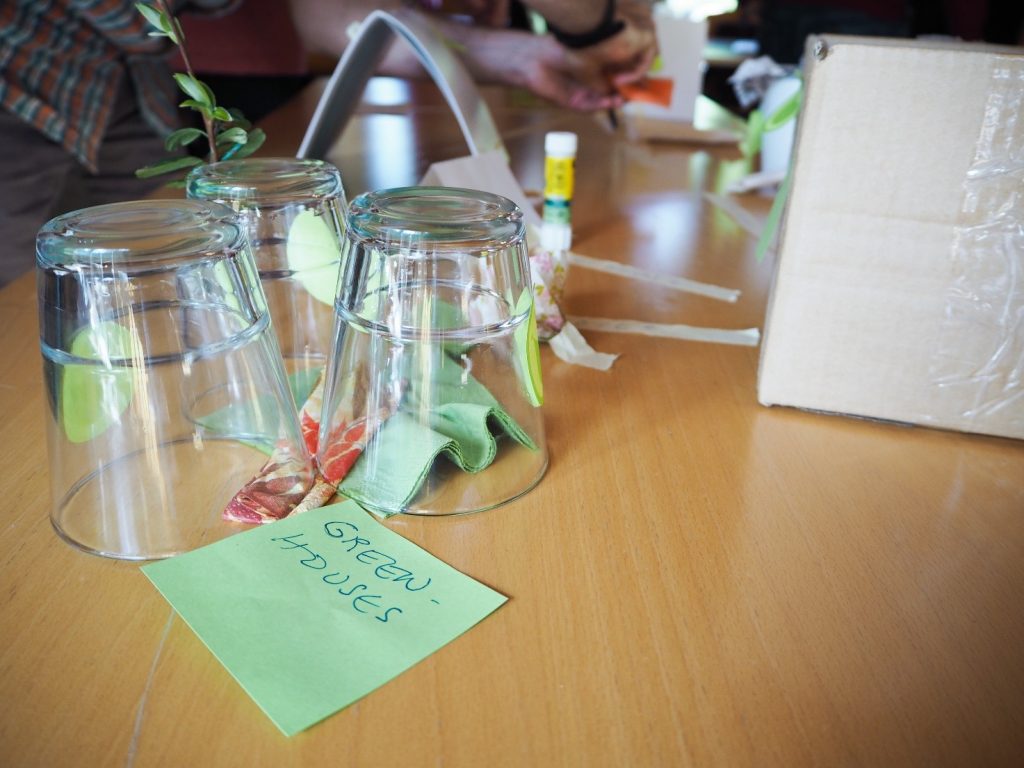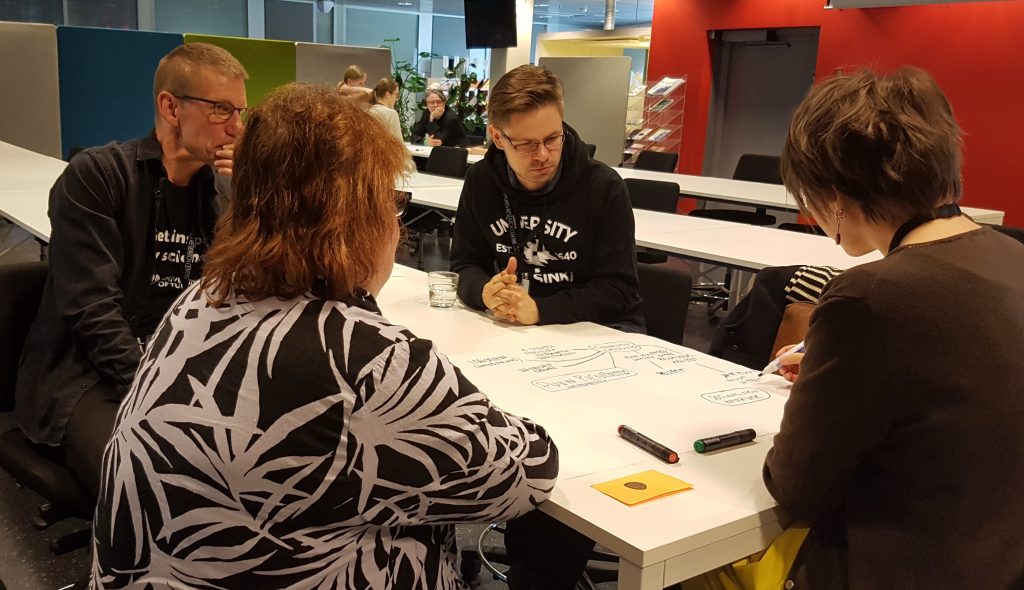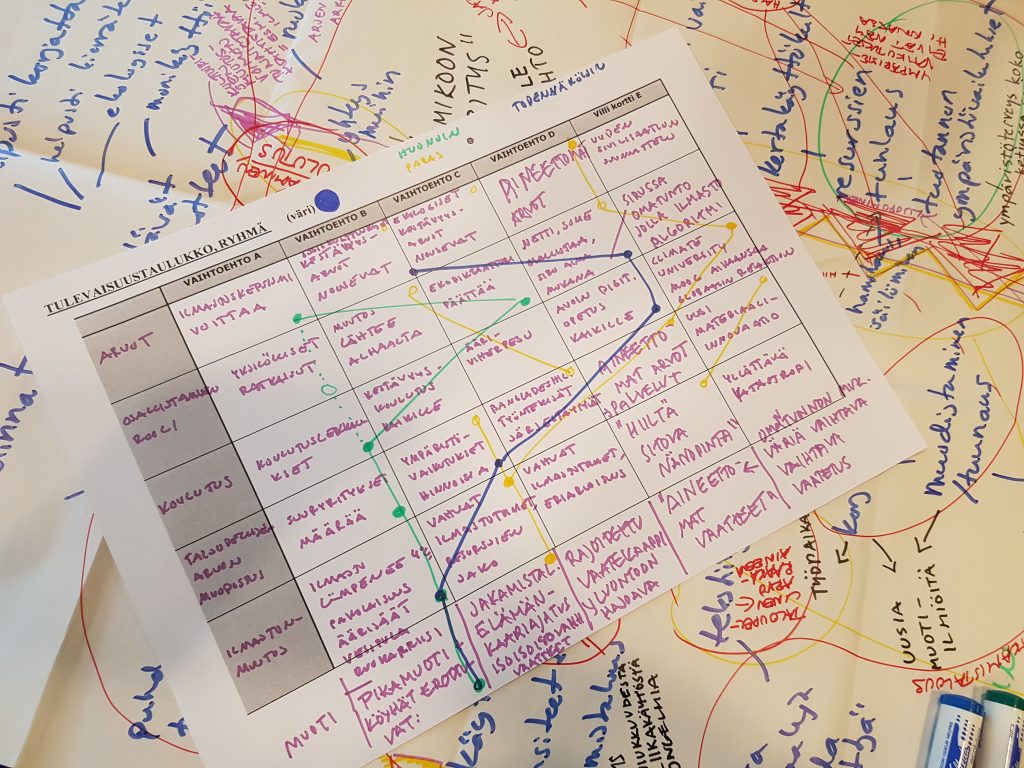“Climate University goes Jyväskylä – teaching and learning for sustainable future” workshop was held in Jyväskylä on 29 March 2019
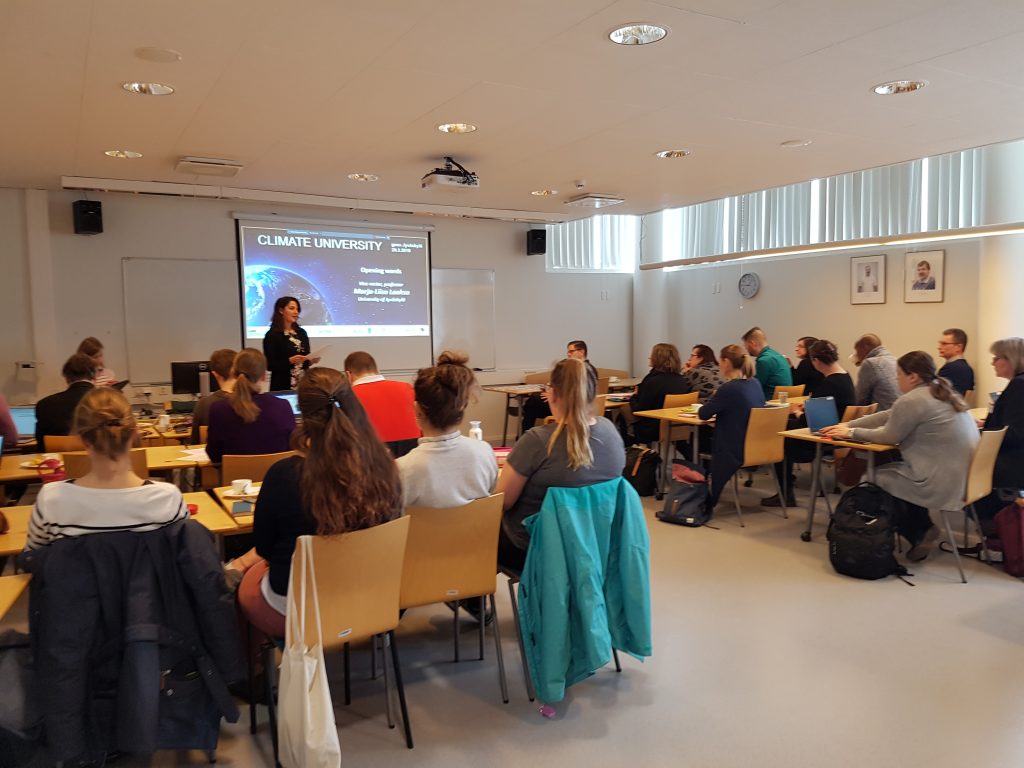
Vice rector of the Univeristy of Jyväskylä, Professor Marja-Leena Laakso opening the Climate University goes Jyväskylä workshop. Photo by Laura Riuttanen.
Opening words by Marja-Leena Laakso, Vice Rector of the University of Jyväskylä
Vice rector Marja-Leena Laakso warmly welcomed nearly 50 participants across disciplines and institutes to the second Climate University workshop. In her opening words, she addressed the need for education in order to reduce greenhouse gas emissions and to stop global warming. As a Professor of Early Childhood Education, she brought up the worry of children and the young on their future environment. However, at the end of her speech the vice rector said: “There is hope”. The timely role of Climate University project as a producer of high-quality digital education material was appreciated and acknowledged by the vice rector. For us members of the established Climate University network, her opening words were of great worth.
Video recording of the opening can be viewed here.
Aims of the Climate University
Project coordinator Laura Riuttanen outlined the aims of the Climate University project for the next two years: to make two new moocs (massive open online courses) and smaller additional material to existing Climate.now course. Laura Riuttanen’s presentation can be viewed in the link above, directly after Professor Marja-Leena Laakso’s presentation. Mikko Äijälä presented results of the online questionnaire sent for participants prior to the workshop. The message was that a holistic, interdisciplinary approach in education material is called for, with new focus areas on consumerism and ethics.
Commentary from working life
After Laura Riuttanen’s and Mikko Äijälä’s floors, we heard views of Development Manager Hannu Kapanen from Regional Council in Central Finland, Environmental Education Specialist Tanja Tuulinen from ELY centre and Environmental Specialist Minna Salonen from Cental Finland Health Care District. The need of communication skills in working life was emphasized, and the reliable, timely information for stakeholders, politicians and health care personnel called for.
After these floors a vigorous and excited conversation broke out. Comments on the need for popularization of science were thrown by several participants. The need of good communication and pedagogic skills were recognized by the audience, too. Student delegates were concerned about co-operating with emotion-based actions and unwillingness to contemplate new environmental information.
Holistic and nexus approaches
“You may leave the village but the village never leaves you” crystallized Professor Tuula Tuhkanen, the local host, in her presentation referring to her work on sanitation in developing countries. Professor Tuhkanen initialized a nexus approach to the Sustainable Development Goals of United Nations to be implemented as a part of the new Sustainability.now mooc. There will be a Jyväskylä Summer school short course in 5-8.8.2019.
Professor Janne Kotiaho introduced the recently established School of Resource Wisdom. The Wisdom is a University of Jyväskylä’s network for scientists pursuing well-being for all the species inhabiting the Earth. Professor Kotiaho’s presentation opened the dialog between Climate University and the Wisdom network.
In the end of this session, Lecturer Vesa Lappalainen brought regards from the Faculty of Information Technology by presenting the online-learning open technology that his team has been developing and that could contribute to the aims of the seminar participants.
Past, present and future of online education
As a concluding presentation of the day, we had a live stream by Professor Thomas Hatfield from the State University of California. Professor Hatfield overviewed the past, present and future of online education. Compared to the situation a couple of decades ago, the communication has improved – not only in terms of hardware and software, but also in terms of interaction. Online platforms enable immediate answers to student’s questions. The important future aspects according to Professor Hatfield were incorporating artificial intelligence to assist in online courses and feasible transfer of credits across institutes. He stressed that “the real meaning of online learning, however, does not come from the computers and programs. It comes from the professor-student interaction”. He emphasized co-operation and building of trust, which suited well in the context of Climate University workshop. Recorded presentation by prof. Hatfield can be viewed here.
Working in small groups
In the end of the seminar day, the participants formed five small groups and discussed about each of their own topics regarding the material that the Climate Univeristy will produce. The two courses and thus two groups took working names of Sustainability.now and Solutions.now following the previously established nomenclature of Climate.now. Third group started outlining the possible plug-ins to the Climate.now -course based on the experiences on using the material on bachelor level courses. Fourth group discussed about the climate education in primary schools. The fifth group was planning how the concrete working-life related innovations will be implemented as a part of the Climate University project. In the near future, the more precise contents of the actions of the Climate University will be established, and these discussions were a good basis for that.
The Climate University goes Jyväskylä was a successful event, incorporating experts to exchange information horizontally and prepare educational plans in a constructive atmosphere. Jyväskylä warmly thanks the Climate University project management (Laura Riuttanen and Mikko Äijälä), the seminar speakers and participants for accepting the invitation to visit us. See you next time in Turku!
Text by: Pauliina Salmi, University of Jyväskylä

Workshop was held at the University of Jyväskylä Mattilanniemi campus, aside the beautiful lake Jyväsjärvi. Photo by Laura Riuttanen.
